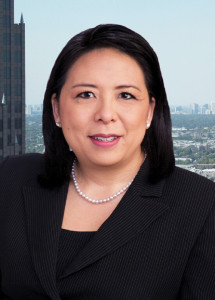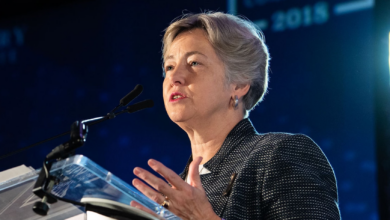Tahirih Justice Center

A lifeline for Houston’s victims of human trafficking
by David Goldberg
The exact definition of the “War on Women” may be open to interpretation for some, but on a global scale, the consequences of this war are quite clear. Gender-based trafficking and violence have become super-industries in their own right, often claiming even more profits than victims. According to the World Health Organization, over 140 million women worldwide live with the consequences of female genital mutilation. Based on cultural traditions and religious beliefs about feminine chastity and bodily preparation for marriage, the dangerous procedure often leads to infertility, cysts, inability to feel stimulation, hemorrhaging, and infection. Many women who have survived mutilation flee their oppressive communities, seeking opportunities for safety in another country. More insidious, and certainly more profitable than genital mutilation, is human trafficking, which is now the second-biggest illegal industry in the world, worth an estimated $32 billion. Women and children are sold into sex slavery or forced labor, often without knowing what city they are in and without any legal right to defend themselves.
As Americans, how do we pursue justice for the oppressed of other nations and the refugees who pass through them without identities? And, as citizens who are indeed still fighting for the rights of our own gender minorities, are we in any place to enforce judgment? This type of global conflict may seem too pervasive and too distant for us to get involved with.
But it appears these affronts to human rights are not as far from home as we might imagine. According to Texas Monthly and the Department of Justice, Houston is one of the top five hubs for human trafficking in the country, hosting an estimated 1,000 of the 17,500 trafficked victims who pass through the United States every year. And, as a city in close proximity to the most trafficked border in the world, Houston has become a refuge for women fleeing from mutilation, honor crimes, domestic violence, trafficking, and abuse.
“Houston is a very compassionate city,” said Anne Chandler, director of the Houston branch of the Tahirih Center, a national nonprofit that provides pro-bono legal representation to women and girls seeking asylum in the United States. “Its people, its government, and its law enforcement are working to create structures so that nobody—regardless of their country of origin—is living in fear of domestic violence or in a situation in which their home is a scary place to be.”
At the center of the charge is the Houston office of Tahirih, which has other offices in Baltimore and the nation’s capital. The Texas branch has only been running for a few years, but already the need for medical care, interpreters, and competent legal help for immigrant women has swelled beyond what the upstart volunteer network can provide. The United States does afford rights to these women, but as survivors rarely speak English and often cannot afford proper legal representation, they still find themselves in legal limbo.
By building a gestalt base of local cases and victories, Tahirih looks to set national examples for victimized women. Michele “Mitch” Gibbons, a local volunteer attorney for the organization, sees her cases as part of a bigger mission. “We’re blazing a trail to create precedents for women of similar circumstances,” Gibbons said.
But Tahirih’s mission doesn’t end with legal assistance. “We take a holistic approach,” Gibbons said. “It takes on a community characteristic.”
“Our clients sometimes don’t have identification,” Chandler added. “Many have had their teeth knocked out, they’ve been burned, and they have torture marks on their bodies, so we document those for the court. We have a group of dentists and physicians that provide free services. We work with volunteer interpreters.” Last year, Tahirih worked with a network of interpreters who speak a combined forty-one languages.
On September 28, the Houston branch celebrates some of its biggest contributors and most active volunteers at the Second Tahirih Center Justice Gala, held at the Houstonian Hotel. The event honors Gibbons, consistent supporters Mogjan and David Shin, and Shell.
It’s striking to see Shell, along with ExxonMobil, recognized as major supporters of a gender-based nonprofit, let alone an immigration-related cause—especially in this town. But Chandler doesn’t find it surprising.
“Naturally, immigration can be a hot-button issue. But nobody wants to come here and live with a feeling of fear or violence. That is a normal level of compassion and human understanding. One of the philosophies of our center is to be strictly non-partisan. Our statements on political policy come from patterns that we see and the experiences of our clients. So that’s who we speak for. Does [a particular immigration bill] in Congress negatively impact immigrant women or girls fleeing violence in this community? If our answer is yes, we then take that stance.”
As the attention of the nation shifts toward eliminating institutionalized gender oppression, groups like Tahirih will become bigger players in the legal and local arenas. Hopefully, Houston will change as well. Raed Gonzalez, an immigration attorney and Tahirih volunteer, feels optimistic about Houston. “It’s a good city. Lately, it’s become more inclusive. We have a lesbian mayor. The tide is changing.”
Chandler, Gibbons, and the Tahirih network hope that the gala will boost awareness for the organization and mobilize Houston into action. Gibbons doesn’t see the effort as too difficult. “Once you see someone who is willing to take such a courageous step, you want to do everything you can to support and perpetuate that kind of empowerment.”
INFO: The Tahirih Justice Center’s 2013 Gala • September 28 • The Houstonian Hotel, 111 North Post Oak • 6:30 p.m. To learn more about Tahirih Justice Center and the 2013 Justice Gala, visit tahirih.org/houston.










